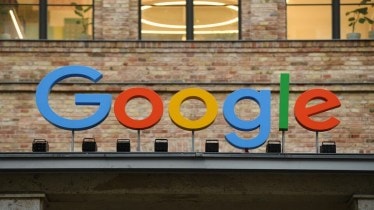Shares of Google-parent Alphabet surged 8% in after-hours trading on Tuesday after a US court delivered judgement in an antitrust case that had threatened Google’s core business model. As per the reuling, the technology giant would avoid the most drastic penalties sought by regulators.
The upbeat sentiment extended beyond Alphabet. Apple, which earns billions each year from Google to keep its search engine as the default on iPhones, climbed 4% in after-hours trading. Both stocks benefited from the court’s decision to reject calls for sweeping divestitures.
What do we know about the case?
The case dates back to September 2023, when the US Department of Justice (DOJ) accused Google of illegally monopolising the internet search market. In August 2024, the
US District Court for the District of Columbia found that the company had violated Section 2 of the Sherman Act, cementing its dominant position through exclusive distribution deals.
Judge Amit Mehta oversaw the remedies trial earlier this year and delivered his decision on Tuesday. While confirming that Google acted unlawfully, he dismissed the DOJ’s calls for sweeping structural changes, such as forcing the divestiture of Chrome or the Android operating system.
The DOJ had argued that Chrome and Android provided Google with the data and reach to entrench its monopoly in search and advertising. However, Judge Mehta ruled that breaking up these assets would go beyond the scope of the case and could harm consumers and business partners. “Plaintiffs overreached in seeking forced divestiture of these key assets,” he wrote.
Google echoed the sentiment in a blog post, warning that some of the restrictions could affect user privacy, but welcoming the court’s recognition that divestitures were unnecessary.
Meanwhile, one of the most significant outcomes of the ruling is a prohibition on exclusive contracts. Google may still make payments to partners such as Apple to preload its search services, but it can no longer demand exclusivity as a condition of those deals.
The DOJ argued that these agreements froze the market for rival search providers. “The ruling recognises the need for remedies that will pry open the market for general search services,” the department said, adding that the measures will also extend to Google’s emerging artificial intelligence products.
Data sharing requirements
The court also ordered Google to share parts of its search index and user interaction data with competitors. However, the requirement stops short of forcing Google to open its advertising datasets, a relief for the company. Access must be granted on commercial terms similar to Google’s current syndication arrangements.
Meanwhile, the parties are now set to meet again on 10 September, when the final judgment is expected to be filed.
